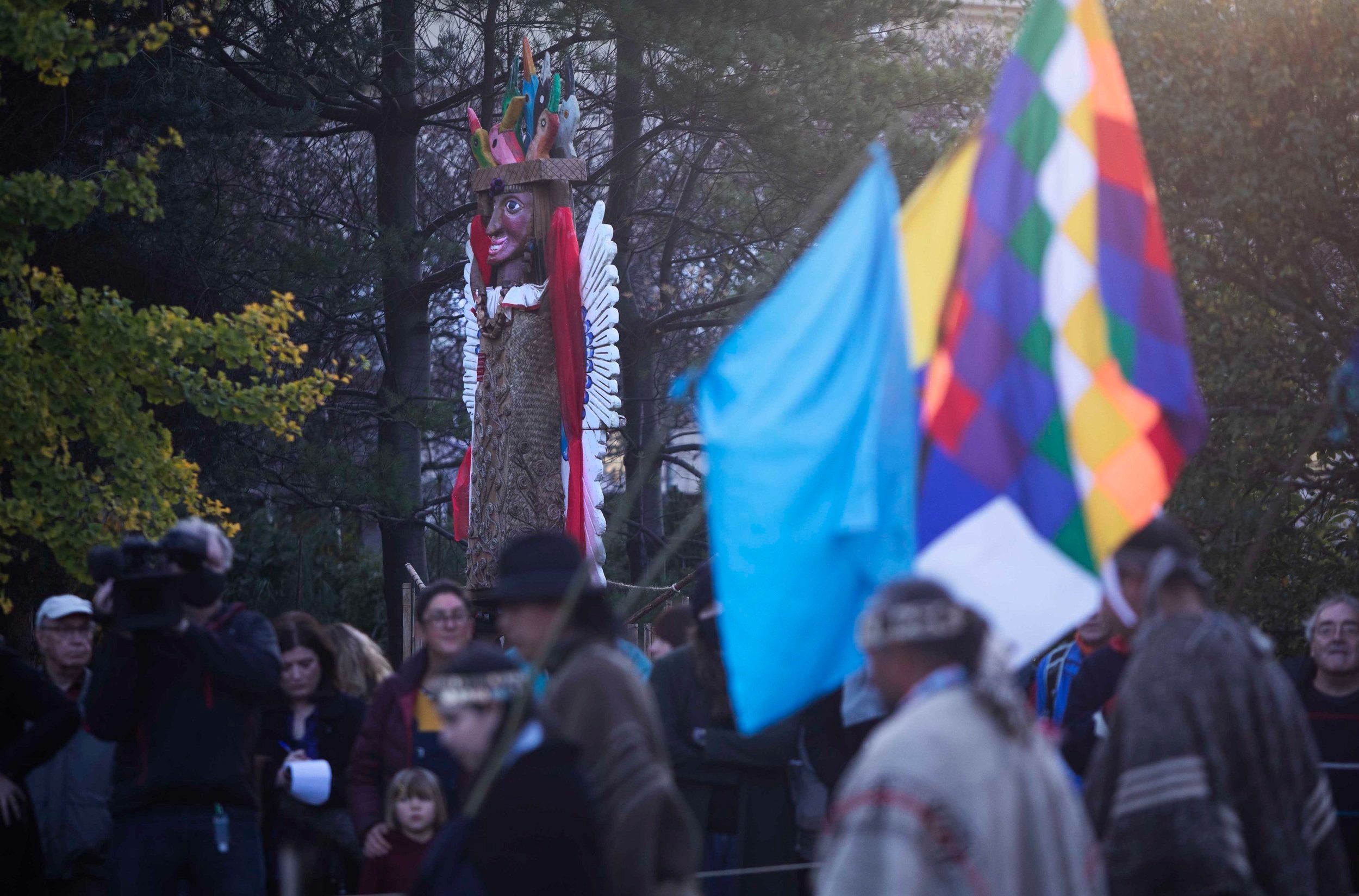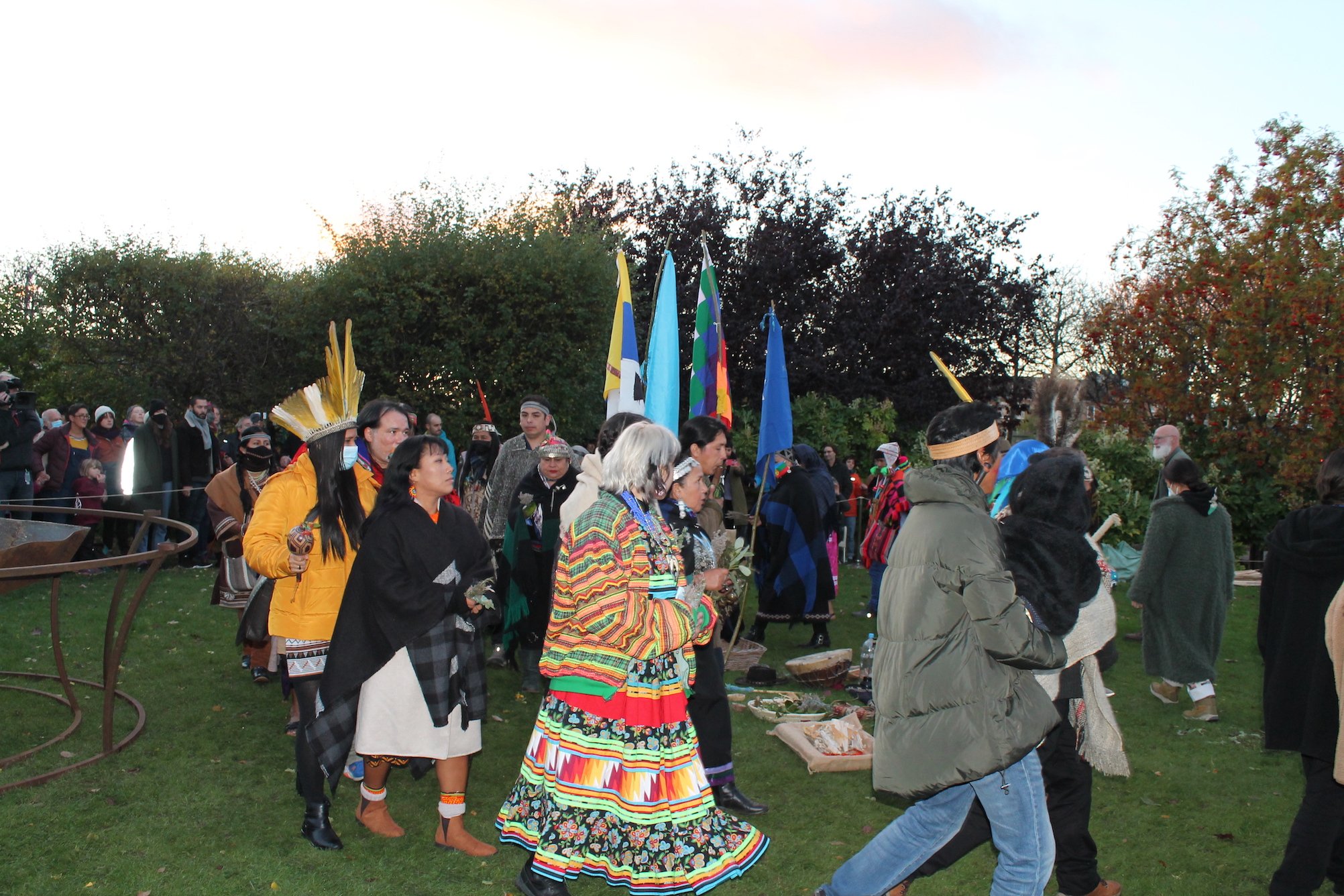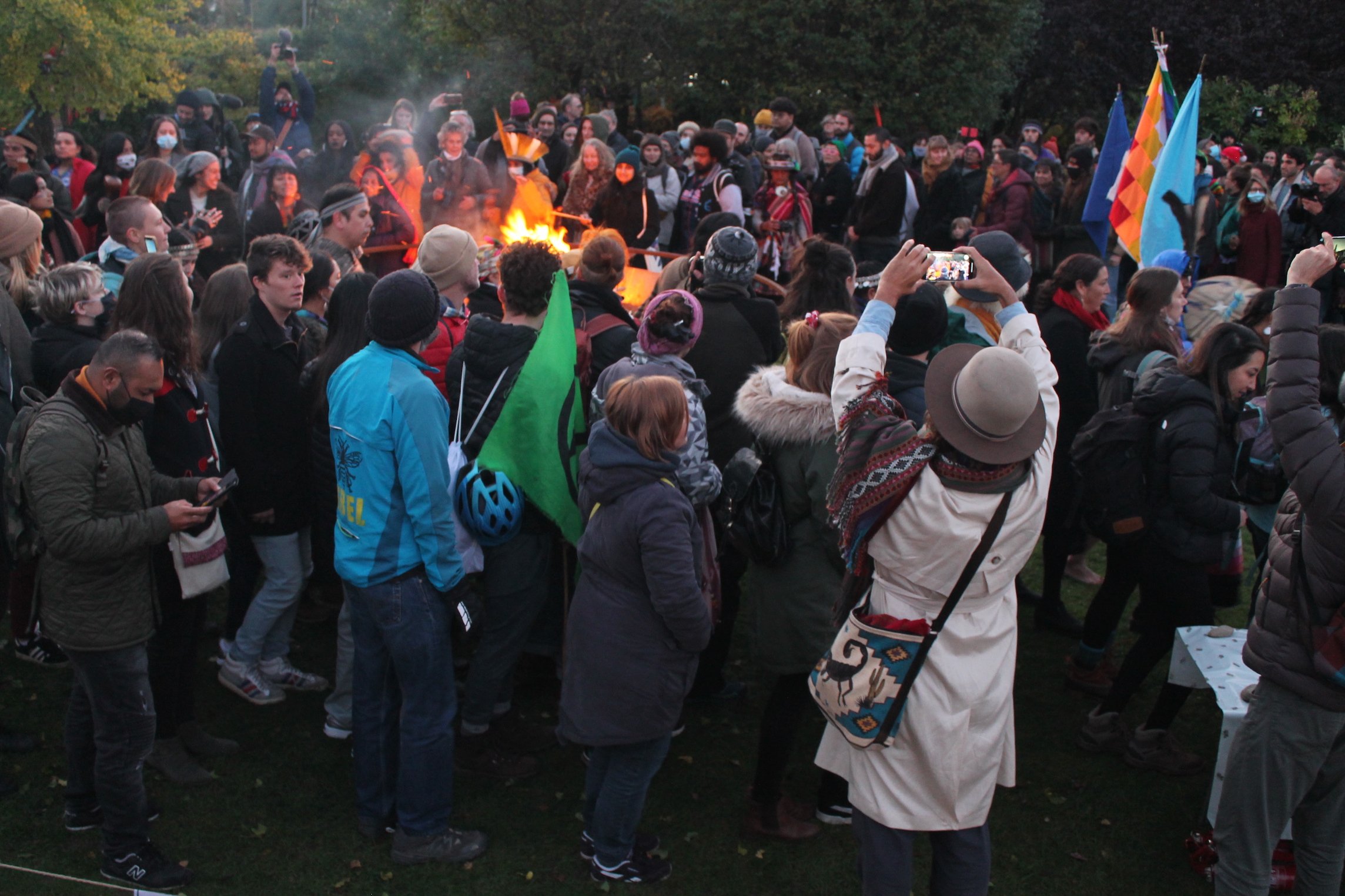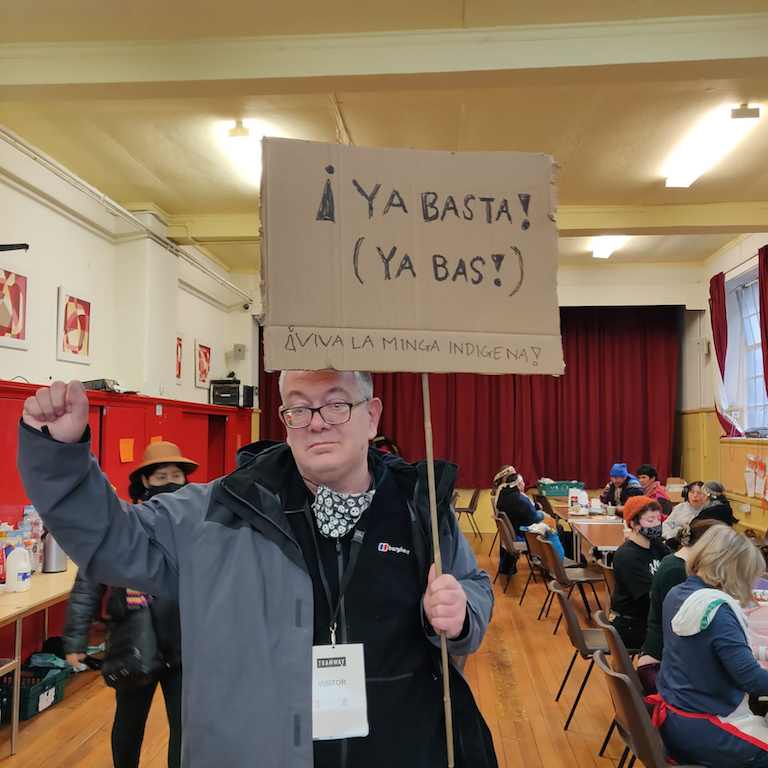Two years on: Remembering how a community fed La Minga Indigena during COP26
This week marks the two year anniversary of COP26. Whilst the impact of the conference left many underwhelmed, the collective action and community support that was channelled during those days cannot be overlooked. In this piece, a resident reflects on the Southside’s efforts to host and feed the elders from the La Minga collective.
By David Carr | Photos by David Carr and The Hidden Gardens
Minga: n (Quechua). A voluntary agreement between communities to come together to achieve a common purpose, e.g. to build a rope bridge, a road, or a government.
They flew in on their big jet planes. The world leaders, the fossil fuel lobbyists, and the bosses of the big NGOs all descended on Glasgow for the Conference of Parties. But not invited to the party were those for whom climate justice is an urgent concern, the marginalised, the dispossessed of the Global South.
La Minga Indigena is a collective of elders of indigenous peoples from across the American continent, which they call Abya Yala. Amongst them are people who are affected by climate catastrophe and deforestation in the here and now. They are quite literally the guardians of the rainforest. The Southside was privileged to host them from their hub at the Tramway and Hidden Gardens.
It was a quiet Sunday and I was idly contemplating the COP’s programme of fringe events when my daughter sent me a callout from social media. Bodies were needed at the Pollokshields Bowling Green. I wasn’t entirely sure why – but I was happy to pitch in. I learned that the purpose was to feed some hundred plus of La Minga Indigena over the two weeks of the COP from St Ninian’s Church, who had kindly handed over their keys for the duration.
The community response was instant and overwhelming. A small crowd gathered and we spent the afternoon hoiking pots and pans, sacks of tatties, and gas cylinders over to the church.
We had very little in the way of food, And no money. But that bridge could be crossed when we came to it. We had a whole fourteen hours before our guests were due.
Monday arrived. Needs must and I went completely out of my comfort zone and started phoning around local shops.
It was at that precise moment that the wonder of community cohesion kicked in. I phoned Strawberry Garden, a large grocers in Pollokshields. Of course, we could have some vegetables. Super Asia, another grocers – two sacks of rice and a drum of cooking oil. The al-Khair Foundation – a whole load of tinned chickpeas. Pretty soon we had enough for lunch… just.
Then they arrived. Suddenly we were meeting delegates dressed in Andean and rainforest attire. There were speeches on the importance of the connection between the human spirit and nature, which moved me to tears.
Rossana Huenefil, leader from the Mapuche people of Chile
And then there was the force of nature that is Rossana Huenefil. A leader from the Mapuche people of Chile, she spoke of her free kitchen, La Resistencia Olla Común, in Valparaiso. Rossana had taken one look at the ostentation of the COP and decided to do something more constructive. She and her gentle son Nawel would cook for La Minga, her ‘familia.’
So began two frenetic weeks. An army of volunteers chopped vegetables washed dishes, swept floors, and took away mountains of recycling. I only went to wash dishes. Somehow I ended up food-blagger-in-chief. ‘You the boss!’ Rossana would tell me. ‘I am so not the boss!’ I would reply. This was a communal effort, an ordinary miracle of spontaneous self-organisation. La Minga was fed on a diet of creative chaos and goodwill.
Read: After COP26: The Indigenous Struggle Continues
And the food flowed in. In large part thanks to the kindness of an interfaith food sharing network, we were never short. Special mention is due to Zahir Haider, a big-hearted human dynamo who zips around the Central Belt delivering surplus supermarket food to those in need. We got our milk from Gurdwara Guru Granth Sahib and our chicken from local halal butchers. We got vegetables from allotments. I’m not sure who donated the samosas and Irn Bru – but they went down well.
But Glasgow’s pretty Baltic in November, especially when you’re from the Amazon. So another call went out for warm clothes. Thanks to the generosity of local people, the church’s choir room was almost instantly filled with a mountain of coats and jumpers.
I have a giddy blur of memories. The daily COVID tests – we had vulnerable rainforest people to protect – the rain-lashed march from Queens Park to Glasgow Green, Little Amal – the giant refugee puppet. Somehow amongst the madness, I found time to take Rossana to hear me sing with Govanhill Voices at a fringe event in the East Pollokshields Quad.
And I have a particularly cherished memory of the shamanic drumming ceremony in Queens Park. A sacred fire was lit, the crowd birled round and round drumming, whooping, shrieking – then at the end spontaneously sang Auld Lang Syne. The stranger next to me turned and said, ‘We’ll tell our grandweans about this.’
It was an honour to serve La Minga Indigena. It took the efforts of the strong and welcoming Southside community which pulled together to feed, clothe and house our guests.
La Minga came to share their wisdom. The COP didn’t listen. But while the world governments swithered over saving the planet, we showed what could be achieved without them.
On the Southside of Glasgow, we learned by example. We formed a minga to feed La Minga.





